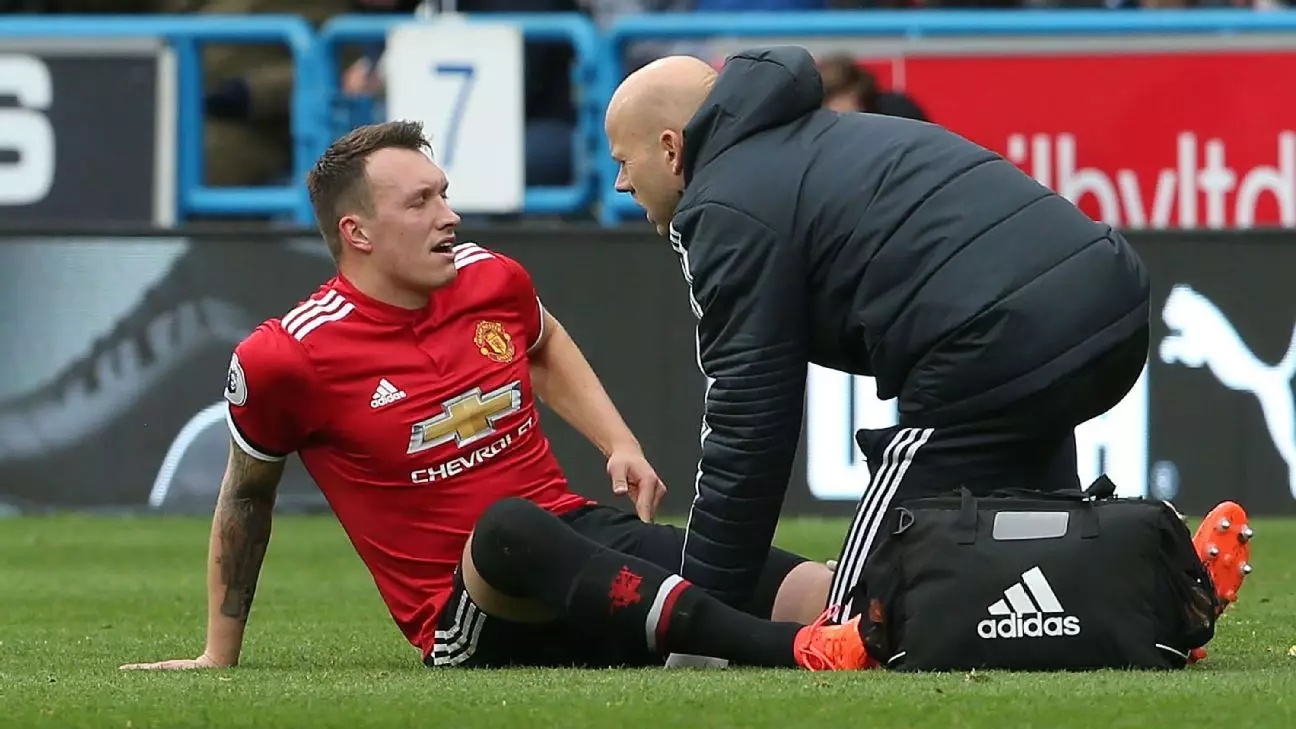In the cutthroat world of professional football, the struggles brought on by injury can often feel isolating and intensely burdensome. Phil Jones, a former Manchester United defender, has recently opened up about the profound impact that injuries had on his career, articulating a sentiment that likely resonates with many athletes across various sports. Expressing feelings of embarrassment regarding his own limitations, Jones shed light on the psychological struggles that Mason Mount and Luke Shaw are facing as they deal with their injury setbacks.
Being sidelined by recurring physical issues while representing an iconic club like Manchester United can be overwhelming. Mount and Shaw have been out of action for significant stretches, with Mount’s missed games stacking up to an alarming 51 since joining from Chelsea, while Shaw has paradoxically missed more matches than he has participated in since his transfer from Southampton. For these athletes, the pressure to perform is compounded by the weight of expectations from fans, media, and even teammates, creating a potentially toxic atmosphere as they navigate their recoveries.
The Impact of Social Media on Athlete Morale
In today’s digitally connected world, social media plays an indispensable but often detrimental role in shaping public perception. Jones empathizes with Mount and Shaw not just for their physical setbacks, but for the incessant online scrutiny that accompanies their absences. The barrage of comments and criticism they face can exacerbate feelings of inadequacy and shame, making the path to recovery feel even more daunting. The harsh reality is that athletes who are physically incapacitated often find themselves at the mercy of public opinion, which has a tendency to skew toward the negative.
Jones’ understanding of the emotional toll of injuries highlights a growing issue in professional sports. While physical rehabilitation is paramount, the mental well-being of athletes should not be overlooked. Considering the psychological implications of social media interactions, it’s crucial for clubs and support staff to cultivate an environment that prioritizes mental health, ensuring players feel secure and valued regardless of their availability on the pitch.
Returning on Their Own Terms
A critical component that Jones emphasizes is the importance of returning to play only when athletes feel genuinely ready. Despite the pressures to hasten recovery timelines, he argues that the players’ own feelings of comfort and confidence should dictate their return to competitive action. This approach, while sometimes difficult to communicate to an impatient fan base, is essential for long-term success—not only in terms of individual performance but also in preserving the athlete’s health for the future.
In this high-stakes arena, players like Mount and Shaw should be celebrated for prioritizing their own health and well-being over the immediate desires of fans and club officials. The narrative needs to shift from one that values immediate results to one that recognizes the importance of resilience, patience, and self-advocacy among athletes.
By supporting and understanding the complex emotional landscapes athletes navigate during injury, we not only encourage healthier recoveries but contribute to a culture of compassion within the sports world. The road back from injury is never easy, but it can become a powerful testament to an athlete’s resilience and fortitude.

